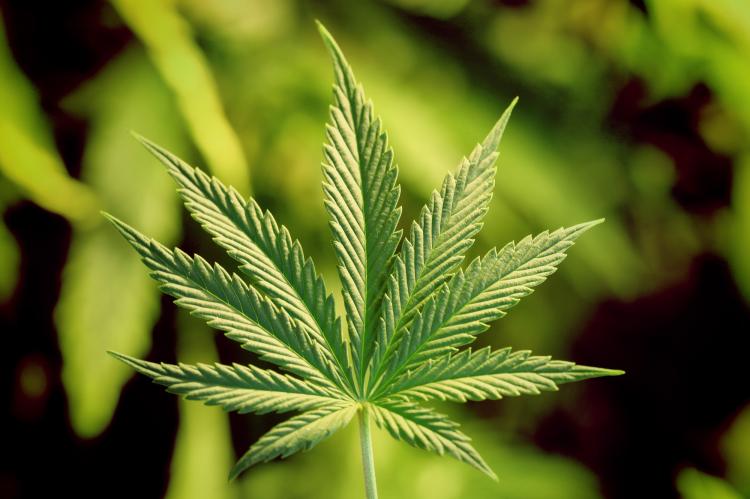States Deem Medical Marijuana Essential Industry Amidst COVID-19 Emergency
Businesses are on the front lines of the COVID-19 outbreak. Employers must attempt to balance public health concerns, compliance with emergency government orders, employee safety, consumer demand, and financial reality. Many states are enacting restrictions on business activity or even forcing “non-essential” companies to close or transition to a work-from-home policy.
When the crisis began it was not at all clear how the medical marijuana industry would fare. Recent developments suggest the industry has not only escaped closure, but many states have relaxed existing restrictions to encourage greater patient access while containing the spread of the virus.
The United States medical marijuana market is estimated to reach nearly $8 billion in sales in 2020 with annual growth of around 17%. 33 states currently have some type of medical marijuana program with an estimated 3 million total patients across the country. The industry employs 240,000 people.
The onset of the COVID-19 outbreak presents a new arena of legal uncertainty for a rapidly expanding industry known to inhabit a constant state of flux. The Pennsylvania medical marijuana industry reached $500 million in total sales over just its first two years of existence. The Keystone State currently has about 150,000 medical marijuana patients. The New Jersey medical marijuana industry has likewise demonstrated remarkable growth following recent expansions of eligibility.
Mid-Atlantic States Respond to COVID-19
The COVID-19 outbreak is hitting the Mid-Atlantic states harder than many other areas. New Jersey and Pennsylvania have been among the most aggressive in enacting emergency measures to slow the spread of the virus. Many of these executive orders restrict the ability of “non-essential” businesses to operate for the duration of the ongoing emergency.
The ambiguity over which businesses are “essential” or “life-sustaining” has generated confusion amongst business leaders and warranted multiple clarifications from officials. Most states have policies in place allowing businesses to apply for waivers. New York, Connecticut, and New Jersey also enacted statewide shelter in place orders. Pennsylvania currently has a shelter in place order across 22 counties.
On March 19, 2020, Pennsylvania Governor Tom Wolf announced all “non-life-sustaining businesses” would be ordered to close physical locations. New York announced similar restrictions on March 20, 2020. On March 21, 2020, New Jersey Governor Phil Murphy signed Executive Order 107 forcing all “non-essential” retail businesses to close.
Is Medical Marijuana an Essential Business?
Nearly every state with a medical marijuana program has determined the industry should continue operating as an essential business. Under this designation, medical marijuana dispensaries are basically treated like pharmacies providing essential healthcare products.
Not only have states refrained from shutting down businesses engaged in the production and sale of medical marijuana, but many states have also relaxed existing restrictions.
Government promotion of social distancing may be making it easier for medical marijuana dispensaries to operate in Pennsylvania. On March 20, 2020, the Pennsylvania Department of Health announced the temporary suspension of several important restrictions. For the first time, patients and caregivers may pick up medical marijuana at the curb outside of dispensaries. Other loosened regulations in Pennsylvania include:
- Waiver of limits on how much medical marijuana may be purchased.
- Elimination of background checks for caregivers.
- Relaxed restrictions on the number of patients per caregiver.
- Allowing remote consultations for the renewal of medical marijuana cards.
“In the midst of COVID-19, we need to ensure medical marijuana patients have access to medication,” Secretary of Health Dr. Rachel Levine said in a press release. “Medical marijuana grower/processors and dispensaries are considered life-sustaining businesses under the Governor’s order for nonlife-sustaining businesses to close. We want to be sure cardholders in the medical marijuana program can receive medication for one of 23 serious medical conditions during this difficult time.”
New Jersey also relaxed restrictions on medical marijuana establishments, known as Alternative Treatment Centers (“ATCs”). New Jersey is allowing curbside pickup and reducing fees for caregivers from $100 to $20. On March 24, 2020, the New Jersey Department of Health’s Division of Medical Marijuana released guidance on how ATCs may hire employees during the emergency period. The guidance relaxes restrictions on background checks for “provisional” employees. New Jersey has about 73,000 medical marijuana patients and generated an estimated $100 million in sales in 2019.
The New York Department of Health considers all medical marijuana companies to be “essential businesses” and implemented similar steps to ensure access during the outbreak. Regulations on home-delivery are temporarily relaxed and sales are now permitted at the door of dispensaries.
Like several other states, Connecticut defines “essential businesses” in terms of guidance from the Department of Homeland Security Cybersecurity and Infrastructure Security Agency. The Agency has a list of 16 critical infrastructure sectors. Notwithstanding federal law, Connecticut created an exception from this guidance by placing medical marijuana within the healthcare sector.
Some states are placing additional restrictions on medical marijuana dispensaries as part of their response to COVID-19. Maryland announced rules requiring dispensaries to limit over the counter interactions. The federal Small Business Administration is prohibited from offering disaster relief loans to any cannabis business.
Conclusion
The initial demand for medical marijuana during the COVID-19 outbreak was reported as very strong. Industry analysts estimate demand increased 20% nationwide in mid-March, 2020. Dispensaries in Pennsylvania and New Jersey reported long lines as patients added medical marijuana to their emergency shopping lists. Available data suggests this preliminary spike in demand was followed by a steep, sudden decline.
The long-term legal ramifications of the COVID-19 outbreak are difficult to predict. As the unprecedented public health emergency continues to spread across North America, the medical marijuana industry should continue to monitor the developing legal implications.
- Log in to post comments

